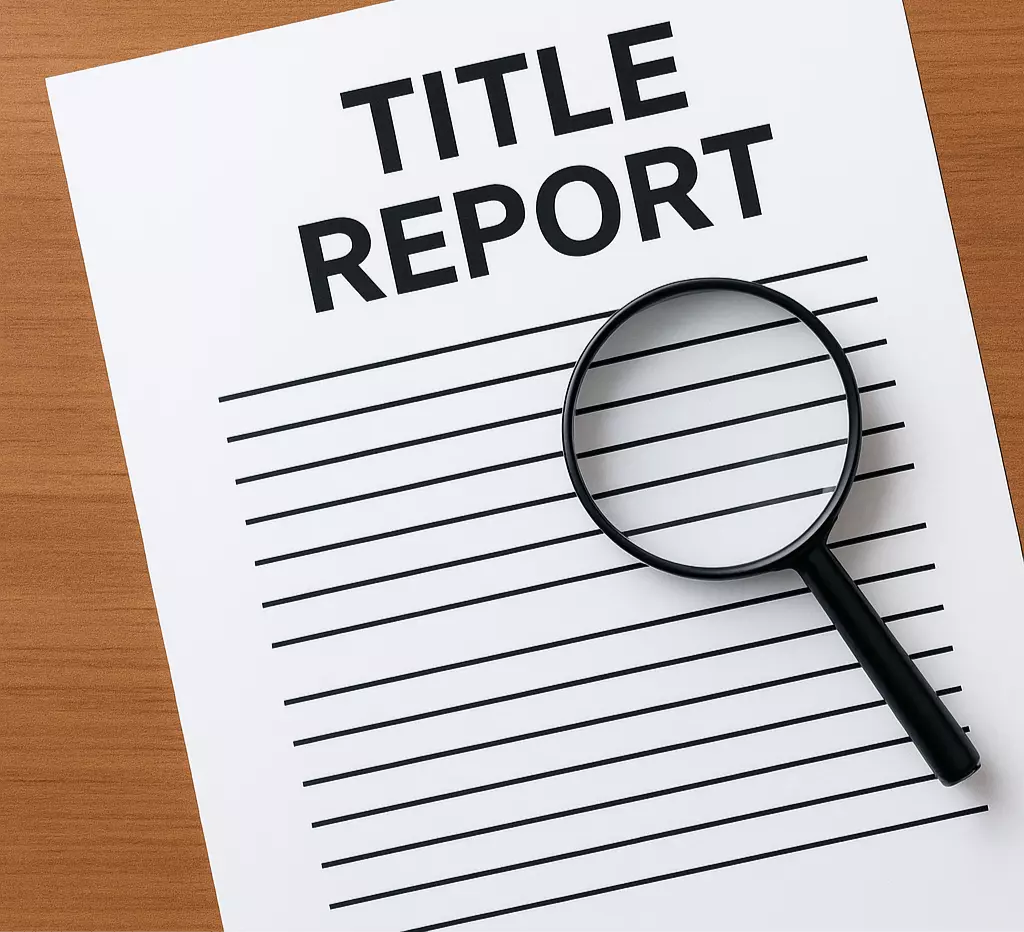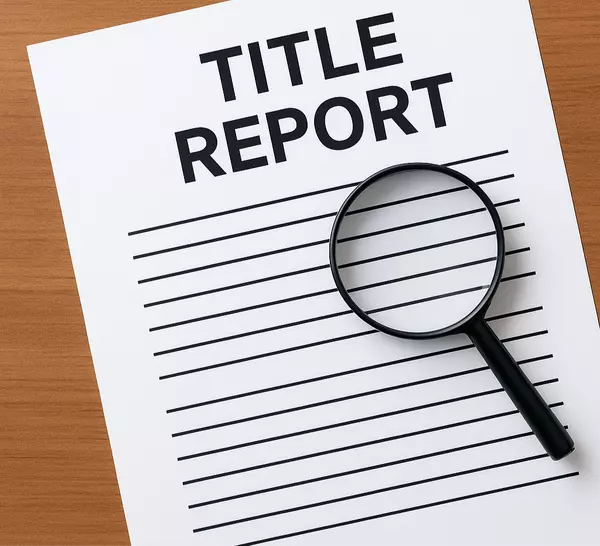What’s in a Title Report? A Beginner’s Guide to Understanding Title Searches

When buying or selling a home, there's more to consider than just curb appeal or closing costs. One of the most critical—but often overlooked—parts of a real estate transaction is the title report. Whether you're a first-time buyer or an experienced seller, understanding what’s in a title report can help protect your investment and avoid costly surprises down the road.
What Is a Title Report?
A title report is a document generated after a title search is conducted. It outlines the legal status of the property and identifies any issues that could impact ownership. This report is typically ordered by a title company or attorney before closing, and it serves as a blueprint of the property’s ownership history, along with any “baggage” it might carry.
Why a Clean Title Matters
The goal of reviewing a title report is to ensure the property has a clean title—meaning the current owner has the legal right to sell it, and there are no legal claims or disputes attached to the property. A clean title ensures a smooth closing process and protects the buyer from future legal challenges.
If the title isn’t clean, the buyer could unknowingly inherit debts or legal issues. That’s why lenders require title insurance—because no one wants to discover after closing that someone else has a legal right to your new home.
Key Components of a Title Report
Here are the most common sections you'll find in a title report and what they mean:
1. Legal Description of the Property
This includes the official boundary lines, lot number, and location details used in public records. It’s more specific than the property’s mailing address and legally defines what you're buying.
2. Ownership History (Chain of Title)
This section lists all previous owners and how the property was transferred over time. Any discrepancies here could signal potential problems with rightful ownership.
3. Liens
Liens are financial claims against the property. Common types include:
- Mortgage liens (if the seller still owes on their home loan)
- Tax liens (for unpaid property taxes)
- Mechanic’s liens (for unpaid contractor work)
If these aren’t cleared before closing, the new owner could be held responsible.
4. Encumbrances
Encumbrances are claims or limitations that affect the use or transfer of the property. These may include:
- Easements (legal rights for others to use part of your land, like utility companies)
- Restrictive covenants (rules set by a homeowners' association or developer)
- Right-of-ways or access issues
While some encumbrances are common and manageable, others can be deal-breakers depending on how they affect property use.
5. Judgments or Legal Actions
This section highlights any pending lawsuits, probate issues, or court orders involving the property. These can delay or block the sale entirely.
Why It Matters for Buyers and Sellers
For buyers: Reviewing the title report helps you avoid unexpected debts or legal claims after closing. You’ll also gain peace of mind knowing the seller has the legal right to sell the home.
For sellers: Identifying title issues early allows you to resolve them before listing or during escrow. This avoids last-minute surprises that could derail the deal.
The Bottom Line
A title report might not be the most exciting part of buying or selling a home, but it’s one of the most important. Think of it as a health check-up for your property’s legal status. Taking the time to understand it—and working with a trusted title company or real estate professional—can save you stress, time, and money in the long run.
Have questions about title reports or what comes up in a title search? Drop them in the comments or contact us—we’re here to help you navigate every step of the real estate process.
Categories
Recent Posts










GET MORE INFORMATION

Parisa Samimi
Founder & Real Estate Broker | License ID: 01858122
Founder & Real Estate Broker License ID: 01858122
